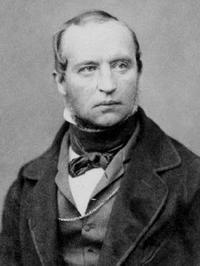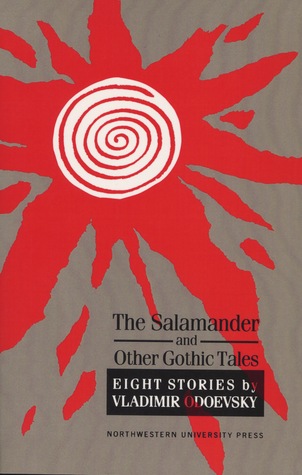Vladimir Odoyevsky

Prince Vladimir Fyodorovich Odoyevsky (Russian: Владимир Федорович Одоевский) was a prominent Russian philosopher, writer, music critic, philanthropist and pedagogue. He became known as the "Russian Hoffmann" on account of his keen interest in phantasmagoric tales and musical criticism.
Aspiring to imitate Ludwig Tieck and Novalis, Odoyevsky published a number of tales for children (e.g., "The Snuff-Box Town") and fantastical stories for adults (e.g., "Cosmorama" and "Salamandra") imbued with the vague mysticism in the vein of Jakob Boehme and Louis-Claude de Saint-Martin.
Following the success of Pushkin's The Queen of Spades, Odoyevsky wrote a number of similar stories on the dissipated life of the Russian aristocracy (e.g., Princess Mimi and Princess Zizi). On account of his many short stories from the 1820s and 1830s, Odyoevsky should be listed among the pioneers of the impressionistic short story in Europe.
His most mature book was the collection of essays and novellas entitled The Russian Nights (1844). Loosely patterned after the Noctes Atticae, the book took two decades to complete. It contains some of Odoyevsky's best known fiction, including the dystopian novellas The Last Suicide and The Town with No Name. The stories are interlaced with philosophic conversations redolent of the French Encyclopedists.
As a music critic, Odoyevsky set out to propagate the national style of Mikhail Glinka and his followers. Among his many articles on musical subjects, a treatise about old Russian church singing deserves particular attention. Johann Sebastian Bach and Beethoven appear as characters in some of his novellas. Odoevsky was active in the foundation of the Russian Musical Society, Moscow Conservatory, and St. Petersburg Conservatory.

